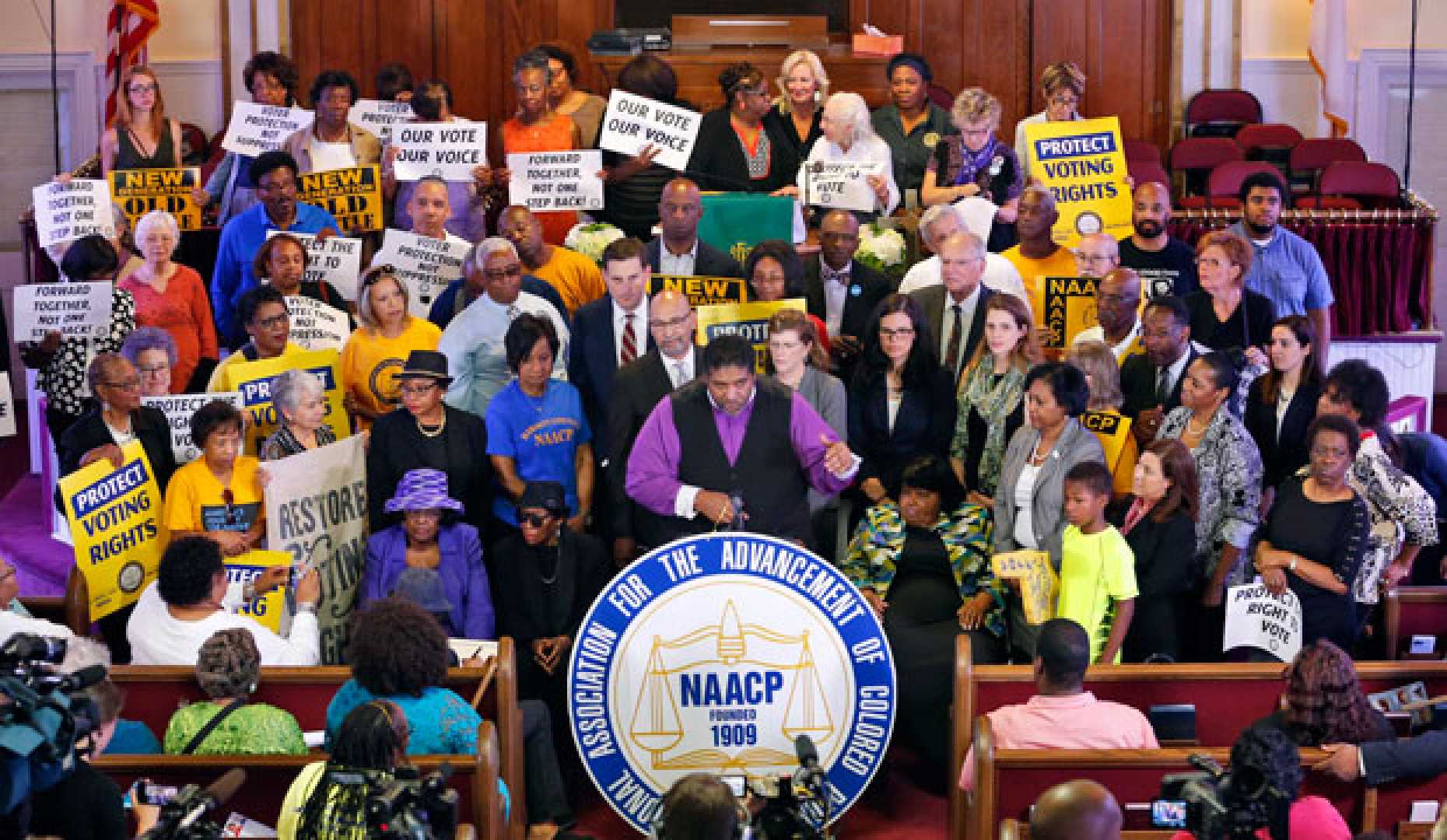Politics
Democrats Face Challenges in North Carolina Amid Political and Environmental Turbulence

On a Sunday morning in September, the atmosphere inside the historic Mt Lebanon AME Zion Church in Pasquotank County, North Carolina, was a blend of gospel music, prayer, and political discourse. Reverend Javan Leach emphasized the significance of political participation, declaring, “This is a very, very important, very, very dangerous opportunity.” He warned his congregation of the consequences of apathy, likening inaction to supporting the opposition.
The church, situated in a Democratic stronghold, is part of a region where rural Black voters notably contributed to Barack Obama‘s 2008 victory. However, support for Democrats has waned over the years in Pasquotank and similarly rural areas nationwide. In the 2020 elections, Democrat Joe Biden narrowly won the county by just 62 votes, a reflection of the tight margins facing the party.
Despite a narrow defeat in North Carolina, Donald Trump, who won the state by 1.3% in 2020, is facing a “toss-up” competition against Kamala Harris, encouraging Democrats in traditionally red areas. Anderson Clayton, North Carolina’s Democratic Party chair, voiced optimism during a meeting in Onslow County, where Democrats are making unprecedented campaign efforts.
“We don’t have to be afraid to be Democrats in rural communities,” Clayton urged, addressing a crowd in a locale that Trump had secured by a massive 30% margin in 2020. Enthusiastic displays such as Democratic paraphernalia and a life-size cutout of Kamala Harris surrounded the gathering, a bold move in the deeply conservative county.
The strategy involves significant investments: Democrats have enrolled 32,000 volunteers, over 340 staff, and opened 28 offices, even in Republican-led counties like Onslow. Republican leaders, including Senator Thom Tillis, have recognized the Democratic ground game’s newfound strength in the state.
However, the devastation wrought by Hurricane Helene in late September has complicated campaign efforts for both parties. The storm resulted in at least 95 fatalities, with nearly 100 still missing. Kathie Kline, the Democratic Party chair in Buncombe County, described the difficulty of continuing traditional campaign techniques amid the chaos, as infrastructure damage hinders face-to-face interactions.
The challenges posed by Helene’s aftermath accentuate the urgency articulated by community leaders like Reverend Leach, who continues to rally his congregation with messages about the mission-critical role of voting in safeguarding civil rights.
Republicans, underlining the state’s electoral importance, are equally determined. JD Vance, Trump’s running mate, stated, “It’s very hard for us to win unless we’re able to get North Carolina,” highlighting its pivotal electoral role.
Adele Walker, a Republican volunteer in Selma, has taken to canvassing, highlighting issues such as immigration and opposition to abortion. Her experiences have revealed a political landscape where even in regions perceived as solidly partisan, voter interaction can yield unexpected findings.
For some voters, like William Overton, an 85-year-old from Pasquotank County, the upcoming election is crucial, with topics like abortion rights driving him to support Harris. Overton’s sentiment is echoed by fellow church member Michael Sutton, who feels the energy and enthusiasm among voters offers hope.
Nevertheless, the drive to translate enthusiasm into actual votes remains challenging. Younger voters like Justin Herman express ambivalence, emblematic of the broader uncertainties faced by Democrats nationwide. “I don’t know if I’m going to vote at all,” he stated, indicating the complex dynamics at play.












